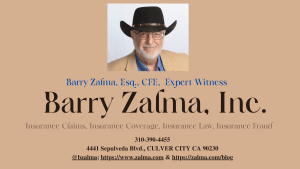Go To Jail, Do Not Pass Go, Stay in Jail

See the full video at https://rumble.com/v4g7z5e-go-to-jail-do-not-pass-go-stay-in-jail.html and at https://youtu.be/cO3qlEd1VTs
Post 4745
In United States Of America v. John M. Thomas, a.k.a. John Thomas, No. 23-11137, United States Court of Appeals, Eleventh Circuit (February 20, 2024) Thomas appealed from his 168-month sentence for 16 counts of wire fraud, 4 counts of money laundering, and 4 counts of money laundering to conceal proceeds of unlawful activity.
FACTS
Between April 22, 2013, and February 16, 2021, Thomas defrauded 69 of his clients at Thomas Insurance LLC in Pensacola, Florida, through premium diversion. Thomas collected insurance premiums from his clients and falsely represented to them that he purchased insurance policies. Thomas provided his victims with fraudulent insurance documents indicating the fake policies were in effect. He also falsely represented to one victim that he had obtained an annuity by providing a fraudulent contract and portfolio summary.
After Hurricane Sally hit the Gulf Coast in 2020, several of Thomas’s victims learned they were uninsured as they sought to file claims for hurricane damage to their property. Through premium diversion, Thomas received payments of at least $4.8 million from his victims and his fraud caused at least $2.2 million in unpaid claims caused by hurricane, fire, and liability losses. When one victim attempted to submit a claim, Thomas directed the victim to send photos and damage estimates to a fake Colorado company he created: “JSSK Risk Advisors, LLC.” Thomas pretended to be an insurance adjuster named “Scott Powrie” at JSSK Risk Advisors to “deny” the victim’s claim.
Thomas was indicted on 16 counts of wire fraud. These violations involved the following four transactions:
$50,000 transfer from his bank account to his Family Trust bank account, then transferred to purchase a Lexus;
$278,730.14 transfer from his bank account to his Family Trust bank account, then transferred to purchase a condominium on Pensacola Beach, Florida;
$30,469.80 check from his bank account to exchange for 20 one-ounce gold coins;
$97,557.19 transfer from his bank account to an E*Trade brokerage account.
Thomas pled guilty to all 24 counts after the magistrate judge conducted a colloquy with Thomas to ensure that he was pleading guilty knowingly and voluntarily. At his sentencing hearing, Thomas’s counsel objected to the sophisticated means enhancement, among other things. Counsel described Thomas’s fraud as “incredibly simple” and stated Thomas’s ability to go undetected for almost eight years stemmed from Thomas’s special skill and the vulnerability of his victims, not sophistication. The court overruled all of Thomas’s objections, including for sophisticated means.
ANALYSIS
Evidence that a defendant converted funds into a form that is more difficult to trace, easier to hide, or less suspicious can support a violation of § 1956.
Thomas has not shown that the error impacted his substantial rights. Even if he could show that he would not have pled guilty, changing the outcome of his convictions on Counts 21, 22, and 24 would not impact the enhancement for violating § 1956, which only requires one conviction under that statute. See U.S.S.G. § 2S1.1(b)(2)(B).
An offense that “involved sophisticated means and the defendant intentionally engaged in or caused the conduct constituting sophisticated means” should result in a two-level increase. Regardless of its elements, the scheme itself may be designed in a sophisticated way that makes it unlikely to be detected, allowing it to continue for an extended period and to impose larger losses. Even schemes with a sole participant can employ sophisticated means.
The Eleventh Circuit concluded that the district court did not clearly err in applying the sophisticated means enhancement. Thomas’s fraudulent scheme must be considered in its totality. Thomas made them in a way that created a sophisticated scheme. Thomas created fraudulent insurance documents and fabricated an annuity portfolio. In addition, Thomas made up an email address for his alias “Scott Powrie” at the fake “JSSK Risk Advisors, LLC” to deny one of his victim’s insurance claims for a policy that never existed.
On his own, Thomas managed to conceal his fraud for over seven years and cause millions of dollars in losses. In light of our precedent and Thomas’s actions, the district court did not clearly err in applying the two-level sophisticated-means enhancement.
Thomas, as an insurance agent, decided he was better at being an insurance company than an insurance company. He took in premiums from his friends and neighbors, never purchased the insurance they needed, denied their claims, and pocketed millions of dollars. When finally caught after a hurricane struck and his clients had no insurance, he pleaded guilty only to try to reduce his sentence in an amazing type of chutzpah by claiming his seven years of stealing was not sophisticated. He will serve his time in the gray bar hotel.
 (c) 2024 Barry Zalma & ClaimSchool, Inc.
(c) 2024 Barry Zalma & ClaimSchool, Inc.
Please tell your friends and colleagues about this blog and the videos and let them subscribe to the blog and the videos.
Subscribe to my substack at https://barryzalma.substack.com/publish/post/107007808
Go to Newsbreak.com https://www.newsbreak.com/@c/1653419?s=01
Go to X @bzalma; Go to the podcast Zalma On Insurance at; Go to Barry Zalma videos at Rumble.com at https://rumble.com/c/c-262921; Go to Barry Zalma on YouTube- https://www.youtube.com/channel/UCysiZklEtxZsSF9DfC0Expg.
Go to the Insurance Claims Library – https://lnkd.in/gwEYk
Like this:
Loading…







